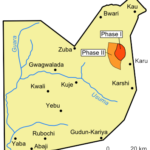Many entrepreneurs consider regulatory compliance as an irritant and a business responsibility to avoid. Unfortunately, this is wrong and unwise and the entrepreneur that wishes to succeed in the long run must do away with that thinking. On the contrary, complying with regulations will actually enhance your chances of success.
What is regulatory compliance? A regulatory requirement is simply a rule or law that is legislated or adopted by an appropriate tier of government or responsible agency, which creates a legal obligation on a specific or a range of issues for business organisations. Some regulations may apply to only businesses in a particular location or industry whilst other regulations might apply to all businesses in general within a national jurisdiction. Depending on what you do, certain regulations by other countries or international bodies can also apply to you. A regulatory compliance, therefore, refers to the obedience of a business organisation to all legally enforceable rules.
What are the benefits of complying with regulations? The first benefit of complying with regulations is that you and your business get to be on the right side of the law. The business doesn’t get to pay fines and damages or suffer through gruelling litigation processes. These help to sharpen your focus by avoiding distractions and saving money, time and effort for the business. In addition, simply being in the basket of regulation gives you and your business the opportunity to engage with authorities formally and socially on regulatory improvements that may help businesses in your area, industry, or the country at large. If you are not in the basket, you will neither have the formal platform nor the moral basis to engage with the authorities. If anything, you will be like a mouse that a cat is looking for!
In the year that just passed, an international organisation, in partnership with a local representative, developed a program to help support micro, small and medium enterprises (‘MSMEs’) in some states of the federation. The support included a business training program for the owners and management of the MSMEs as well as the provision of grant. Obviously, the international organisation and its local representative had a set of criteria to allow for intelligent selection of qualifying MSMEs. Needless to say, only MSMEs that operate with reasonable measure of formality were successfully shortlisted and are currently enjoying a free business training and will stand a good chance of getting a financial support.
Regulations and Regulators: In Nigeria, there are regulations that may be enacted by local, state or federal governments. It is necessary that an entrepreneur not only familiarises themselves but also be fully conversant with all regulations that affect their business, their staff, their goods and services as well as themselves. Some of these regulations include business name registration or incorporation, pension payments, income tax payments, business premises, purchase and use of some types of equipment, production and distribution of certain goods, environmental management, handling of dangerous goods, etc.
In addition to being conversant with regulations, the entrepreneur should also be aware of the specific government agencies that they will be dealing with on each issue. These include; Corporate Affairs Commission (‘CAC’), Federal Inland Revenue Service (‘FIRS’), Nigeria Social Insurance Trust Fund (‘NSITF), National Agency for Food and Drug Administration and Control (‘NAFDAC’), Department of Petroleum Resource (‘DPR’), Nigerian Nuclear Regulatory Authority (‘NNRA’), Standards Organization of Nigeria (‘SON’), Central Bank of Nigeria (’CBN’), Industrial Training Fund (‘ITF’), Pension Commission (‘PenCom’), Nigeria Customs Services, state Ministries of Commerce, etc.
The Professionals: The one or two stop ‘shop’ you must liaise with to establish which regulations are applicable to your business and which government agencies are responsible for those regulations are your accountant and your lawyer. These two professionals will help put you through the regulations to do with your interested business. Ensure that you understand the compliance procedures as well as the cost implications of each regulation. There might be one off payments for some permits and authorisations whilst others might attract regular payments depending on your turnover, staff strength or some other variables. Having a full picture of all such charges are critical to establishing your cost structure as well as developing a pricing model.
Business Associations: In addition to government agencies, voluntary business associations can formulate policies aimed at enhancing their common interests. The entrepreneur is encouraged to participate in such associations for many of the same reasons for complying with government regulations. But while the policies of the associations might not be legally binding on the entrepreneur and their business, being a part of such associations gives you platform to solve certain problems and seize opportunities. For instance, governments and their agencies are known to graciously listen to such associations for input when considering the enactment or amendment of certain laws. Being a participant in such associations, therefore, provides opportunities to make your input. For as long as the policies of the associations do not contravene government regulations, you can positively consider complying with them.
Complying with regulations is very important not only in giving us the legitimacy we require to operate our businesses, but also in providing the moral platform we need to be able to engage authorities in matters that affect our businesses. Next week, we will take up how we can make our businesses to be regulatory-compliant.

 Join Daily Trust WhatsApp Community For Quick Access To News and Happenings Around You.
Join Daily Trust WhatsApp Community For Quick Access To News and Happenings Around You.


